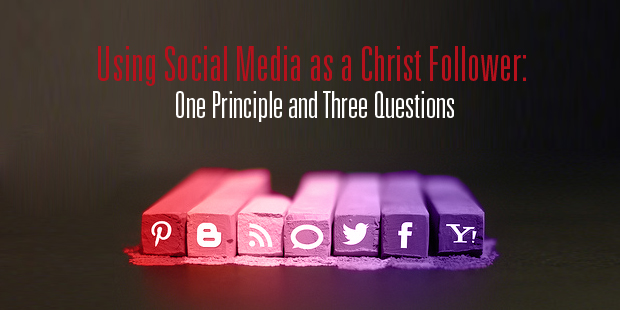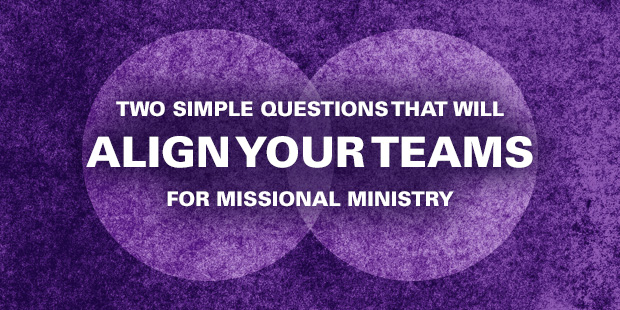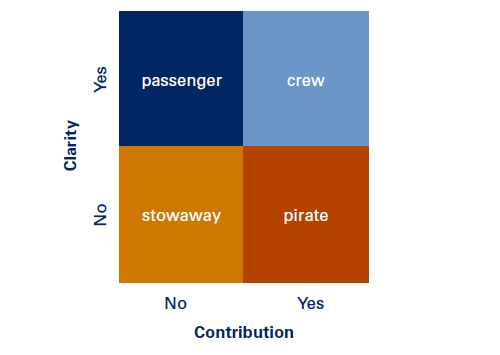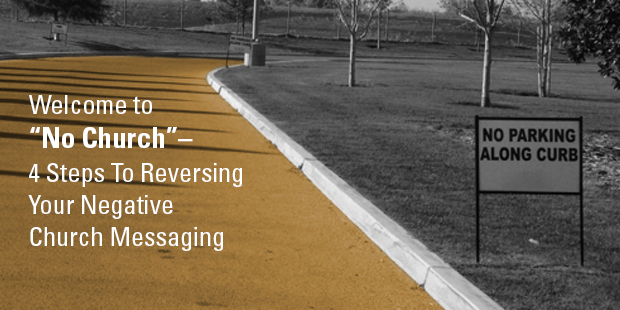Living your mission each day requires an emotional, daily connection to one core or essential idea. That one thing applies to your life, family, church and vocation. To stay focused on your one thing requires conquering three mindsets.
This post kicks off a series on Jesus, Church Leadership and Essentialism. It is a simple remix of my experience with churches, my understanding of Jesus’ life and the recent work of Greg McKeown, called Essentialism: The Disciplined Pursuit of Less.
Remember that essentialism is a broad category of philosophy that goes back to Plato and Aristotle. But McKeown masterfully applies some guiding ideas of essentialism to a practical application in a business context. My enthusiasm for his work is rooted in my own purpose for life: Jesus has created and called me to glorify God and serve others by “applying essence.” That is, helping people and Christ-centered organizations live out of the core (essence) of their God-given design and calling. And remember you have a unique design (Ephesians 2:10).
McKeown opens his book by challenging us with how hard it is to stick to the essential stuff of our lives.
What is the core mind-set of an Essentialist?
Essentialism is not a way to do one more thing: it is a different way of doing everything. It is a way of thinking. But internalizing this way of thinking is not a neutral challenge. This is because certain ideas – and people peddling those ideas – constantly pull us toward the logic of Nonessentialism.
McKeown asserts that there are three deeply entrenched assumptions or mindsets we must conquer to live the way of the Essentialist:
- “I have to”
- “It’s all important”
- “ I can do both”
These mindsets continually lead us to do more than we should. They get us dabbling in the nonessentials. We drift, we cruise and we get distracted. Like mythological sirens, these assumptions are as dangerous as they are seductive. They draw us in and drown us in shallow waters.
To embrace the most important stuff of life, McKeown suggests we must replace these false assumptions with three core convictions:
- “I choose to”
- “Only a few things really matter”
- “I can do anything but not everything.”
These simple truths awaken us from what McKeown calls our “nonessential stupor.” They free us to pursue what really matters. They enable us to live at our highest level of contribution.
So how do these ideas measures up against the life of Jesus. Was Jesus an essentialist?
I believe so!
But I would suggest that we have to modify McKoewn’s sequence a bit to anchor it with a biblical perspective. To do so we will take the 1-2-3, and make it a 3-2-1 with one restatement. Lets start with changing “I can do anything but not everything” with “I was created for something not everything” and then reverse the steps:
- “I was created for something not everything”
- therefore… “Only a few things really matter”
- therefore… “I choose to”
Jesus’s lived his mission each day by conquering three mindsets.
Believe You Were Created for Something Specific, not Everything
Jesus conquered “I can do both” with “I was created for something not everything.” Okay, since Jesus was not created, let’s substitute, “I was sent for something not everything.”Jesus reveals his crystal clarity at several points in the gospel accounts, but perhaps no where better than in John 17:4: “I have brought you glory on earth by finishing the work you gave me to do.” Here we see Jesus identifying a specific purpose and work—his mission on earth. The context of knowing his essential reason for being on earth will root his daily difficult choices not in selfish ambition or narrow-mindedness but in the Father’s intent for sending him. And for us, in the Father’s intent of our created design. Until you believe that there is an essence, you will not pursue the discovery of it with passion.
Define Your Mission Until it Emotionally Connects, not Evaporates.
The bottom line is that most people haven’t processed there calling so that it remains fixed in their mind and heart. It stays vague, and ambiguous therefore constantly evaporates from mental focus and heart connection. Jesus shows that he “kept it close” through a stunning articulation. The best example is Mark 10:45: For even the Son of Man did not come to be served, but to serve, and to give his life as a ransom for many. In this problem solving moment with his disciples Jesus goes to essence, because he had emotionally processed his essence. It was defined and it was articulated. As Aubrey Malphurs once said, “You will never do anything that matters until you define what matters.”
Use the power of choice every day.
McKeown reminds us that the Essentialist knows that when we surrender our right to choose, we give others not just the power but also the explicit permission to choose for us. The questions is, how does Jesus show us the hard decisions he makes each day through the alignment of daily choices to core essence. Two stunning examples show us the extremely difficult choices he made.
The first is in Luke 2:46. This is the first opportunity to glimpse Jesus making an “autonomous” decision as a 12-year old boy. He decides against the expected—returning home with his parents from Jerusalem—and stays in the temple to learn: After three days they found him in the temple courts, sitting among the teachers, listening to them and asking them questions. By this time his parents are in a panic. They returned home from their family vacation without their son! And Jesus knew it. He had elevated his mission above the emotional well being of of his earthly parents.
The second is snapshot was one if his first moments of popularity. The crowd wants Jesus to stick around in Luke 4:42. But Jesus must leave. He insists on the emotionally difficult choice to say “no” to the people with a clear reminder of his essence in verse forty three: But he said, “I must proclaim the good news of the kingdom of God to the other towns also, because that is why I was sent. Jesus leaves the people, denying their request and continues his movement mission in town after town after town.
Jesus was an essentialist and I think, you should be too:
You have an essence and you either you know it or you don’t.
You have an essence and you have either articulated it you haven’t.
You have one life to live and you will make mission-led decisions everyday or you will let someone else’s agenda do it for you.
>> Read more from Will.

Tags: Essentialism, Greg McKeown, Will Mancini, essentialist
|
What is MyVisionRoom? > | Back to Leadership >






























